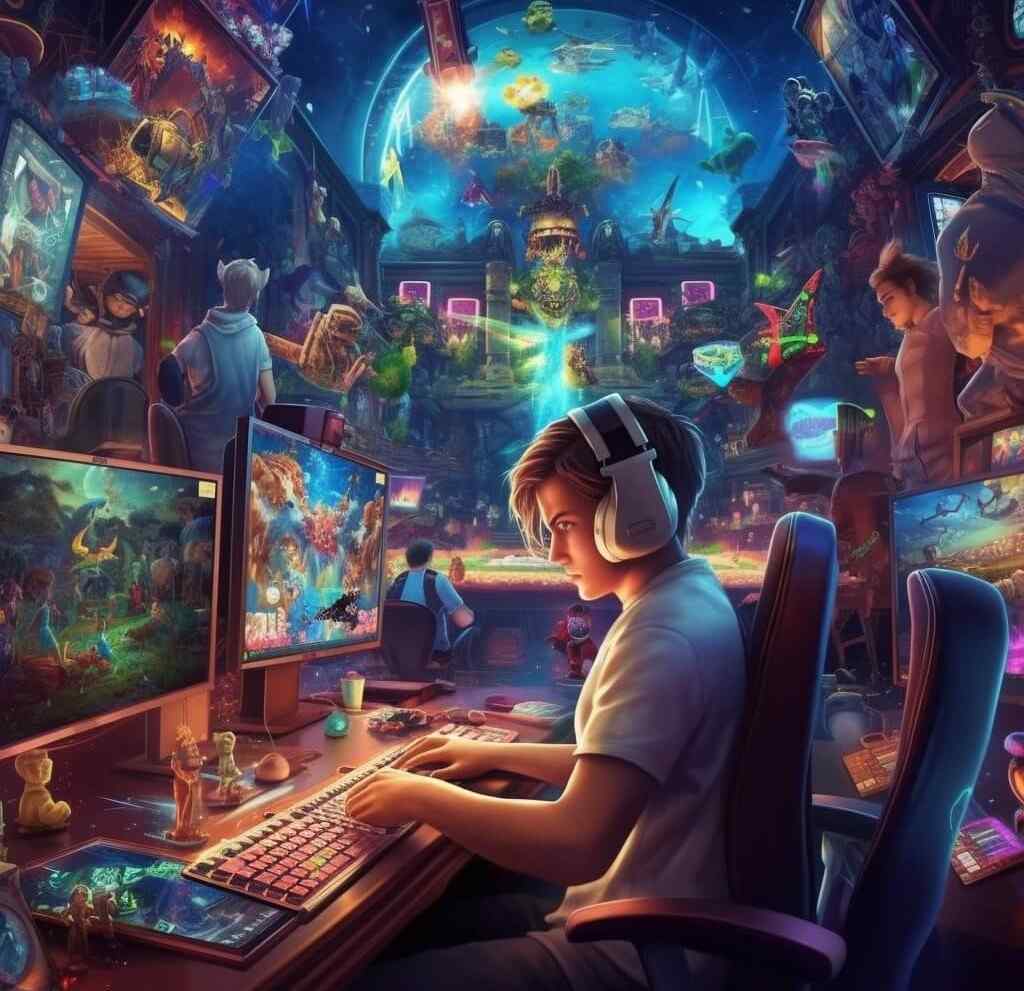- 1. Introduction to Online Gaming
- 2. Understanding Online Gaming
- 3. Starting as an Online Gamer
- 4. Growing as an Online Gamer
- 5. Marketing Your Online Gaming Profile
- 6. Legal Aspects of Online Gaming
- 7. Details to Watch For in Online Gaming
- 8. Best Tools for Online Gaming
- 9. How to Utilize AI in Online Gaming
- 10. Automating Aspects of Online Gaming
- 11. Practical Steps to Become a Professional Online Gamer
- 12. Success Stories in Online Gaming
- 13. Future of Online Gaming
- 14. Conclusion
- 15. Frequently Asked Questions (FAQs)
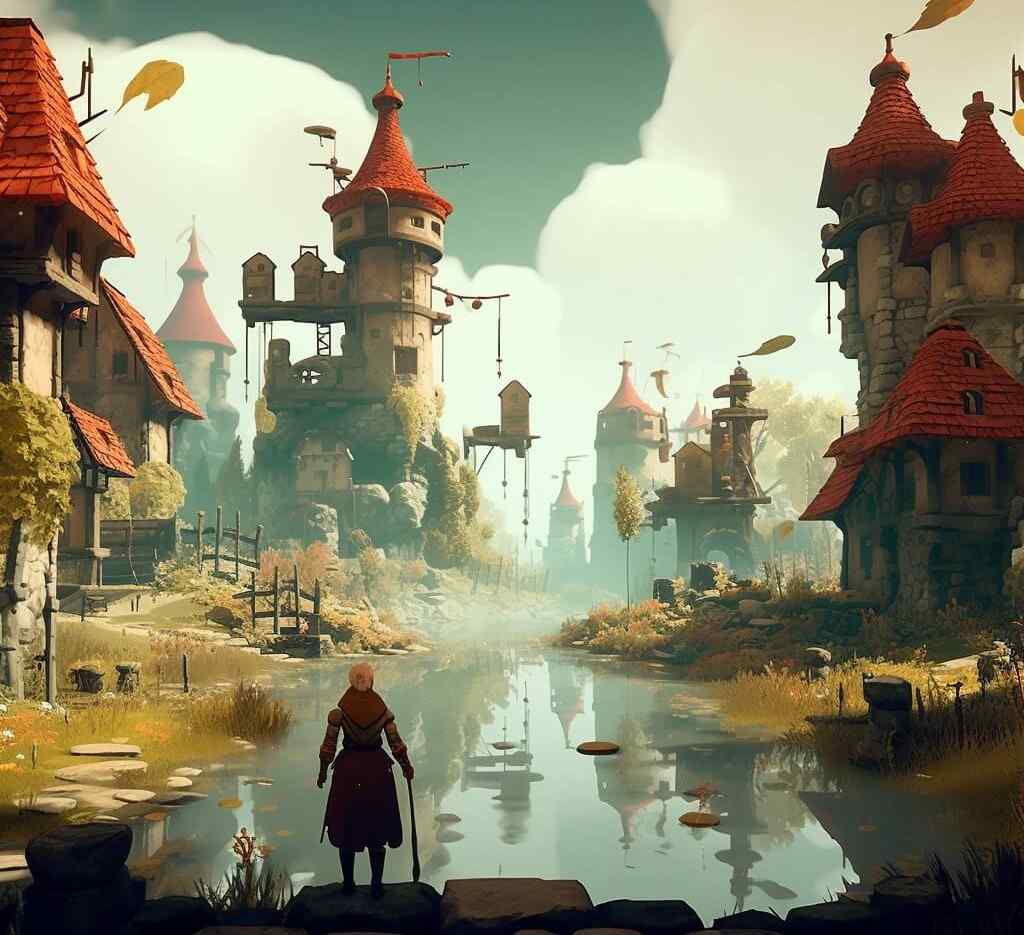
1. Introduction to Online Gaming
1.1. Definition and Overview of Online Gaming
Online gaming refers to playing video games over the internet, either through consoles, computers, mobile phones, or any other medium of digital technology. It encompasses a broad range of genres, including action, strategy, puzzle, role-playing, sports, and educational games. Online games can be single-player (played against pre-programmed challenges) or multiplayer (played against or cooperatively with other human players). Online gaming is a massive digital industry, connecting millions of players worldwide and fostering interactive communities.
1.2. The Popularity and Influence of Online Gaming
Online gaming’s popularity has surged, primarily due to advancements in internet technology and the widespread accessibility of digital devices. According to a 2022 report by Grand View Research, the global online gaming market size was valued at USD 173.70 billion in 2020 and is expected to expand at a compound annual growth rate (CAGR) of 11.5% from 2021 to 2028. Online games have a significant influence on modern culture, shaping social interactions, entertainment consumption, and even career paths for professional gamers and game developers.
1.3. Types of Online Games
There are many types of online games, with new genres constantly emerging. Some prevalent types include Massively Multiplayer Online games (MMO), where thousands of players coexist in a shared game world; Battle Royale games like Fortnite or PUBG, focusing on survival against other players; Real-Time Strategy games (RTS), requiring strategic thinking and quick decision-making; and Casual Games, which are easy-to-play games on mobile devices or social media platforms.
1.4. Pros of Engaging in Online Gaming
Online gaming offers numerous benefits. It provides a source of entertainment, fosters social interaction through virtual communities, and can improve problem-solving and strategic skills. Some games have educational value, teaching about history, culture, and even programming. Online gaming can also open career opportunities in the growing Esports industry, game development, and game streaming.
1.5. Cons of Engaging in Online Gaming
Despite its advantages, online gaming also has potential downsides. Excessive gaming can lead to addiction, negatively impacting physical health and social relationships. Online gamers can experience cyberbullying or encounter inappropriate content. There are also financial risks involved, particularly with games featuring in-app purchases or “loot boxes”. Lastly, privacy and data security can be a concern in the online gaming landscape.

2. Understanding Online Gaming
2.1. The Gaming Industry Landscape
The gaming industry is a dynamic and rapidly expanding sector. This landscape comprises game developers, publishers, hardware manufacturers, game distributors, and the players themselves. There are also peripheral industries such as Esports organizations, game streaming platforms, and gaming peripheral manufacturers. The rise of mobile gaming has further diversified the industry, and the advent of technologies like virtual reality (VR) and augmented reality (AR) are constantly pushing the boundaries of what’s possible in gaming.
2.2. The Skills Required for Online Gaming
The skills required for online gaming vary based on the type and complexity of the game. Basic skills include hand-eye coordination, quick reflexes, and understanding of the game’s rules and mechanics. More complex games might require strategic thinking, teamwork, problem-solving, resource management, and advanced tactical skills. Some games might also require content creation skills, as sharing gameplay experiences is a significant part of the online gaming community.
2.3. Potential Earnings in Online Gaming
Online gaming can offer substantial earnings for skilled and dedicated individuals. Professional gamers can earn from tournament winnings, team salaries, sponsorships, and streaming their gameplay online. According to Business Insider, top professional gamers can earn millions of dollars per year. Content creators on platforms like YouTube and Twitch can also generate significant revenue through ad revenue, subscriptions, and donations. However, it’s essential to note that these are the exceptions rather than the rule, and most online gamers play primarily for entertainment.
2.4. Understanding Gaming Platforms and Genres
The online gaming world spans multiple platforms, including PC, consoles (like PlayStation, Xbox, Nintendo), and mobile devices. Each platform has its strengths and preferred game genres. PCs are known for strategy and simulation games; consoles are popular for action and adventure games, while mobile devices dominate the casual gaming market. Understanding the types of games that thrive on each platform can help you choose the right one for your preferences and goals.
2.5. Trends and Future of Online Gaming
Online gaming is continually evolving, with several trends shaping its future. These include the rise of mobile gaming, driven by improved smartphone capabilities; the growth of Esports, transforming gaming into a spectator sport; virtual and augmented reality technologies offering immersive gaming experiences; and the integration of AI to create more responsive and intelligent game environments. The future of online gaming looks set to be even more interactive, immersive, and innovative.
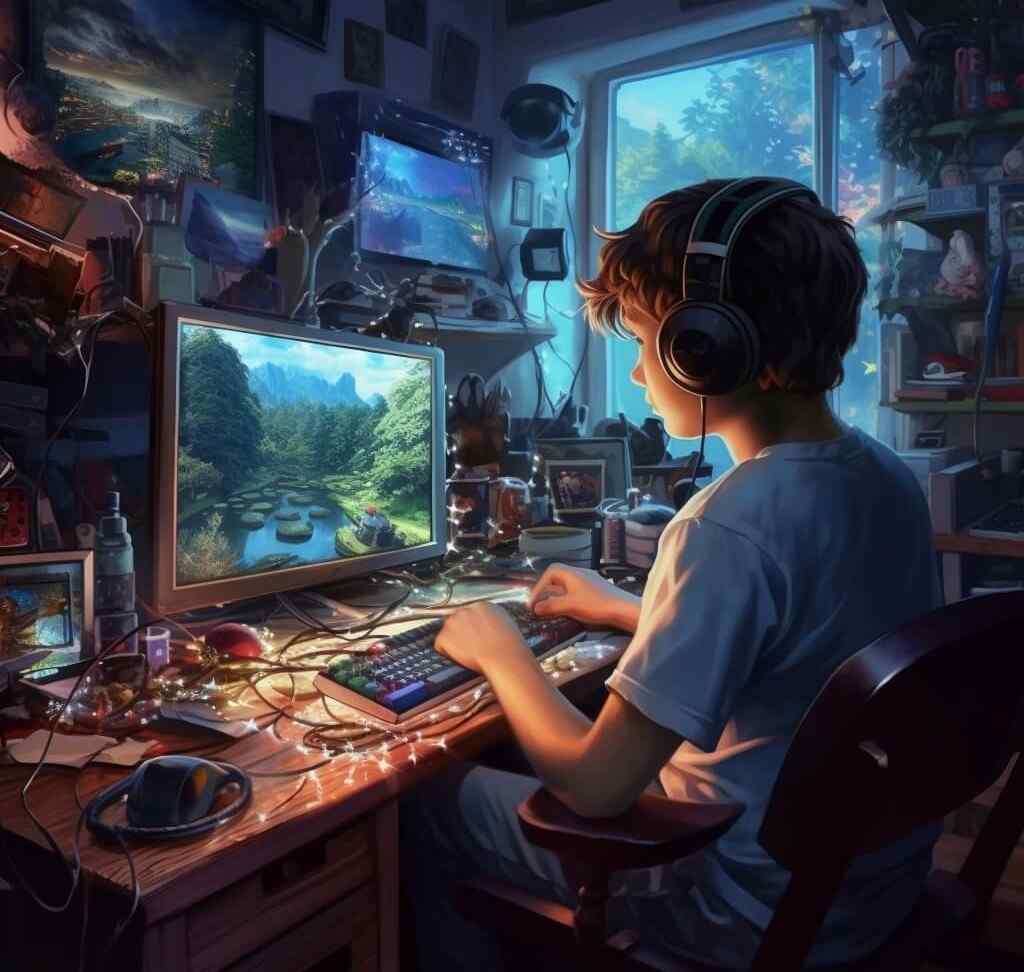
3. Starting as an Online Gamer
3.1. Choosing the Right Game and Platform
Choosing the right game and platform is a crucial first step in your online gaming journey. Consider your interests, time commitment, and whether you prefer single-player or multiplayer games. Try various genres to see what suits you best, whether it’s strategy, action, puzzle, or role-playing games. Remember, the platform also matters: PCs offer powerful performance for complex games, consoles provide ease of use and exclusive titles, while mobile gaming offers convenience and accessibility.
3.2. Essential Gaming Equipment and Software
The equipment you need depends on your chosen platform. For PC gaming, a gaming-grade computer with a robust graphics card, processor, sufficient RAM, and a fast internet connection is essential. Console gamers need the gaming console, a good TV or monitor, and possibly additional controllers for multiplayer games. Mobile gamers need a device with a strong processor and battery life. Regardless of the platform, a good quality headset can enhance your gaming experience. Gaming software includes the game itself, and possibly additional software for communication or streaming if you plan to share your gameplay online.
3.3. Developing Gaming Skills and Strategies
Developing gaming skills takes time and practice. Start by understanding the game’s mechanics and rules. Use tutorials and beginner’s guides to learn the basics, then develop strategies to improve your gameplay. Many online games require strategic thinking, quick decision-making, and in-depth knowledge of game mechanics. Learn from experienced players, join online communities for your game, and most importantly, practice regularly.
3.4. Building an Online Presence as a Gamer
If you’re interested in more than just playing games and wish to be part of the gaming community, start building your online presence. This could involve creating a profile on platforms like Twitch or YouTube, where you can stream your gameplay, share tips and tutorials, and interact with other gamers. You can also join gaming forums and social media groups related to your game to engage with the community, share your experiences, and learn from others.
3.5. Maintaining Consistency and Performance in Gaming
Consistency is key to improving performance in gaming. Regular practice helps refine your skills and maintain a high level of gameplay. It’s also crucial to keep your gaming equipment in good condition for optimal performance. This might involve regular software updates, hardware maintenance, and ensuring a stable internet connection. Make sure to balance gaming with other life activities to avoid burnout and maintain a healthy lifestyle.

4. Growing as an Online Gamer
4.1. Networking and Collaborating with Other Gamers
Building relationships with other gamers is crucial for growth in the online gaming world. Networking can open up opportunities for collaborations, learning, and even competitive play. Join online communities, engage in gaming forums, and participate in local and online gaming events. Collaborations, such as teaming up for multiplayer games or guesting on another gamer’s stream, can also help grow your audience and improve your skills.
4.2. Participating in Online Gaming Competitions
Participating in online gaming competitions, also known as Esports, is a fantastic way to challenge yourself and gain recognition in the gaming community. These competitions range from small, community-run events to large-scale international tournaments with significant prize pools. Competing can enhance your gaming skills, offer potential earnings, and expose you to networking opportunities.
4.3. Upskilling and Staying Updated with Gaming Trends
As the gaming industry evolves, so should your skills and knowledge. Keep up with industry trends, new game releases, and updates to existing games. Attend gaming conventions, follow gaming news websites, and join gaming communities. Consider upskilling—learning new games, improving your content creation skills, or even learning the basics of game development.
4.4. Diversifying Your Gaming Portfolio
Playing a variety of games can make you a more versatile gamer, expose you to different gaming communities, and keep your online content fresh. While it’s good to have a primary game you specialize in, don’t be afraid to explore new games. This can also prevent burnout from playing the same game repeatedly.
4.5. Building a Fan Base and Community
As you grow as a gamer, you may begin to gather a fan base. Engage with your fans regularly—respond to comments, host live streams, and ask for feedback. You could even create a community around your gaming persona, such as a Discord server where fans can interact with you and each other. A supportive and engaged community can significantly enhance your online gaming experience.
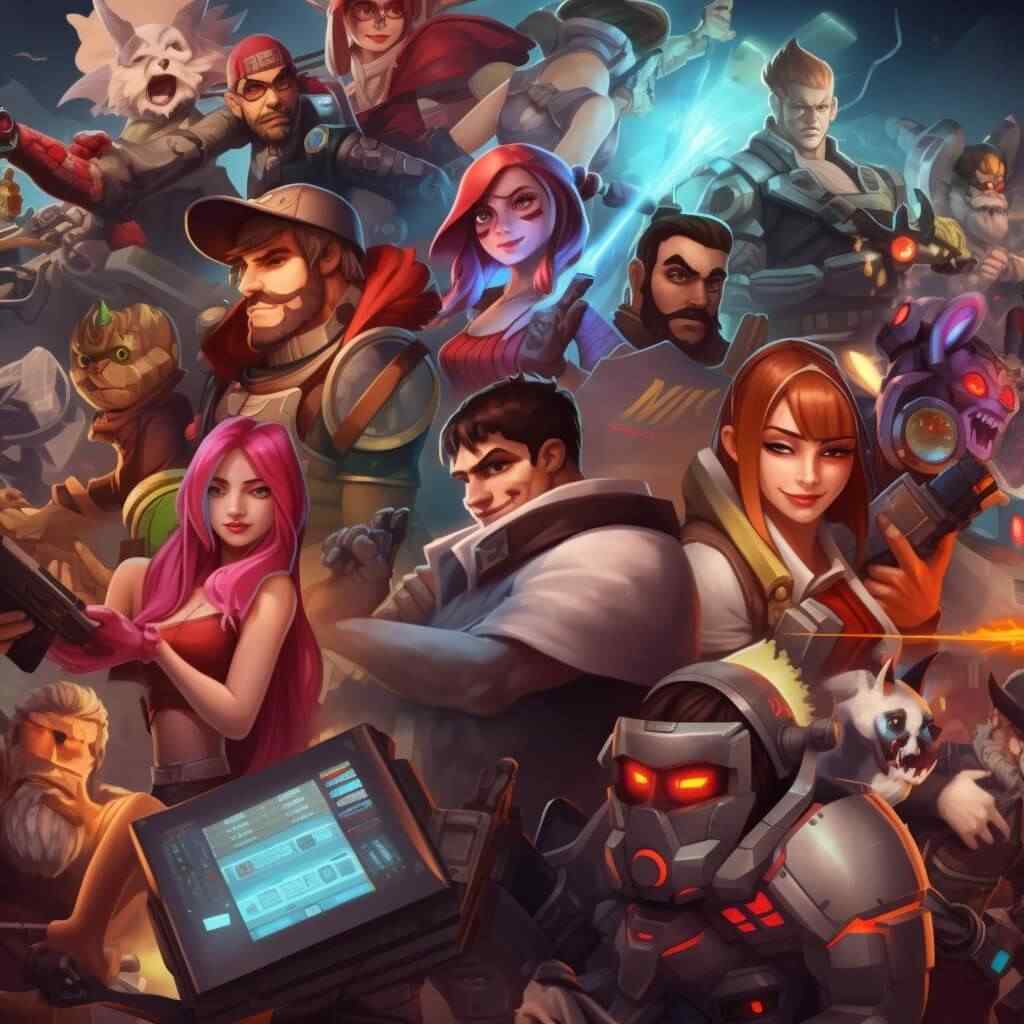
5. Marketing Your Online Gaming Profile
5.1. Building a Personal Brand as a Gamer
Building a personal brand is vital for standing out in the crowded online gaming space. Your brand should reflect your gaming style, personality, and values. It could revolve around a particular game, a unique playing style, or even a certain type of commentary or humor. Consistency in your online persona, across all platforms and interactions, helps establish your brand.
5.2. Leveraging Social Media Platforms
Social media platforms are powerful tools for promoting your gaming profile. Regularly share updates, highlights, and behind-the-scenes content on platforms like Instagram, Twitter, or Facebook. Use relevant hashtags to increase visibility and engage with your followers by responding to comments and messages. Don’t forget to promote your live streams or new content across your social channels.
5.3. Streaming and Content Creation
Platforms like Twitch and YouTube are central to online gaming content creation. Live streaming your gameplay, creating game guides, sharing highlights, or producing game-related commentary are great ways to share your passion and expertise. Consistency and quality are key: maintain a regular posting or streaming schedule and invest in good recording and editing software to produce high-quality content.
5.4. Collaborations and Sponsorships
Collaborating with other gamers or influencers can help expand your reach. This could involve playing together in a stream, featuring in each other’s content, or even hosting gaming events. As your profile grows, you might attract sponsorships from gaming-related companies. Sponsorship deals can provide financial support, free products, and increased exposure.
5.5. Community Engagement and Fan Interaction
Engaging with your community is crucial for retaining and growing your fan base. Interact with your audience during live streams, respond to comments on your content, and participate in discussions in your community spaces. You could also host fan events, such as gaming tournaments or Q&A sessions, to foster community interaction and engagement.

6. Legal Aspects of Online Gaming
6.1. Understanding Gaming Laws and Regulations
Each country has its own laws regarding online gaming, which can cover areas like age restrictions, data privacy, gambling, and online conduct. Some regions may also have specific rules about monetization practices like loot boxes. It’s crucial to understand and comply with the laws relevant to your location and your audience’s locations.
6.2. Copyright and Intellectual Property Issues in Gaming
When sharing game content, be aware of copyright and intellectual property (IP) laws. Most game developers allow players to create and share content (like streams or Let’s Play videos), but some may impose restrictions. Always check the game’s End User License Agreement (EULA) to understand what is allowed.
6.3. Privacy and Data Security
As an online gamer, you’ll likely be sharing and storing a lot of personal data online. Make sure you understand how gaming platforms and services handle your data. Use strong, unique passwords, enable two-factor authentication when available, and be cautious when sharing personal information.
6.4. End User License Agreements (EULAs)
EULAs are legal contracts between the game’s developer or publisher and the player. They outline how the game can be used and what actions can result in sanctions, like a ban. Always read and understand the EULA of each game you play.
6.5. Ethical Considerations in Online Gaming
Online gaming comes with ethical responsibilities. These include treating other players with respect, not cheating, and maintaining fair play. Many games have community standards or codes of conduct that outline expected behaviour.

7. Details to Watch For in Online Gaming
7.1. Keeping Up with Game Updates and Patches
Games frequently receive updates or patches from their developers to fix bugs, introduce new features, or balance gameplay. It’s crucial to keep your games updated to ensure optimal performance and to stay competitive. You can usually set your gaming platform to update games automatically, or you can check for updates manually within each game or through the game’s website.
7.2. Managing Online Safety and Cyberbullying
Online safety is paramount in online gaming. To protect your personal information, use strong passwords, don’t share personal details, and use privacy settings to control who can contact you. Cyberbullying can also occur in online games, so it’s important to learn how to block and report users who engage in harassment or abuse. Most gaming platforms have reporting systems in place for this purpose.
7.3. Balancing Gaming with Health and Wellness
While gaming can be exciting and engaging, it’s essential to balance it with other areas of life, including physical activity, social interactions, and adequate sleep. Prolonged gaming can cause physical discomfort or other health issues, so take regular breaks, use ergonomic gaming equipment, and maintain a healthy lifestyle. If you feel that gaming is negatively affecting your life, don’t hesitate to seek help from professionals or trusted individuals in your life.
7.4. Understanding and Managing In-Game Purchases
Many games offer in-game purchases, such as cosmetic items, power-ups, or even extra content. While these can enhance your gaming experience, they can also lead to excessive spending. Set a budget for in-game purchases, and consider disabling automatic payments on your account. Always read the details of any purchase to understand what you’re getting.
7.5. Avoiding Gaming Scams and Fraud
Scams and fraud can occur in online gaming. These might include phishing attempts, account hacking, scam in-game trades, or fake prize giveaways. To protect yourself, never share your account details, be cautious of unsolicited offers, and use secure, trusted platforms for any in-game trades or purchases.
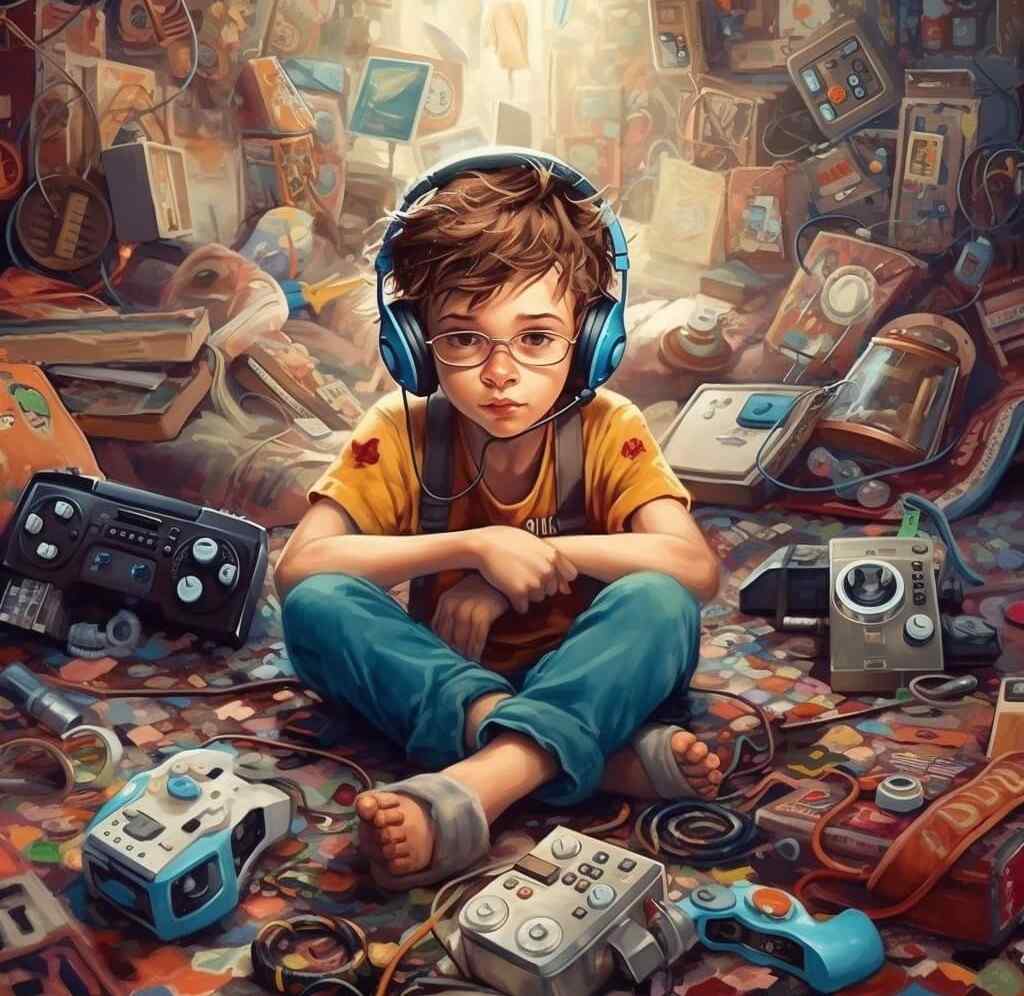
8. Best Tools for Online Gaming
8.1. Recommended Gaming Hardware
The right gaming hardware can significantly enhance your gaming experience. This includes a capable PC or console, a high-quality monitor with a high refresh rate, a comfortable and responsive keyboard and mouse (or controller for console gamers), and a headset with clear audio and a reliable microphone for communication. If you’re streaming, you’ll also need a quality webcam and possibly a green screen for background control.
8.2. Essential Gaming Software and Apps
In addition to the games themselves, several types of software can enhance your gaming experience. Communication apps like Discord allow you to chat with other players. Game launchers like Steam or Epic Games Store help manage your game library. For PC gamers, software like MSI Afterburner can help with overclocking your graphics card for better performance.
8.3. Streamer Tools and Platforms
If you’re planning to stream your gameplay, you’ll need a streaming platform like Twitch or YouTube Gaming. Broadcasting software, such as OBS Studio or XSplit, is also essential for controlling your stream’s output. Tools like Streamlabs can provide on-stream overlays, alerts, and other interactive features.
8.4. Communication Tools for Gamers
Clear communication is crucial for coordinating with teammates in multiplayer games. Services like Discord, TeamSpeak, and in-game voice chat functions are commonly used. Some of these tools also offer features like text chat, file sharing, and screen sharing.
8.5. Platforms for Sharing and Monetizing Gaming Content
For sharing pre-recorded gameplay, platforms like YouTube are ideal. These platforms also offer monetization options, such as ad revenue, viewer donations, and channel subscriptions. Other monetization methods include sponsorships, affiliate marketing, and Patreon support.

9. How to Utilize AI in Online Gaming
9.1. The Role of AI in Modern Gaming
Artificial intelligence (AI) has a critical role in modern gaming. It’s used to create responsive, intelligent behaviors primarily in non-player characters (NPCs), contributing to the complexity and realism of games. AI can adapt to player actions, learn from them, and even predict them, creating a more immersive and challenging environment. For instance, in strategy games, AI is often used to drive the tactics of enemy factions or teams.
9.2. AI Tools and Applications in Gaming
There are various AI tools and applications in gaming. Pathfinding algorithms are used to navigate the game world. Decision trees help determine NPC behavior based on various conditions. Machine learning can be used to create adaptive difficulty levels. Procedural content generation, which uses algorithms to create game content like levels or maps, is another application of AI in gaming. Using these tools can greatly enhance your gaming or game development skills.
9.3. Pros and Cons of Using AI in Gaming
The use of AI in gaming has numerous benefits. It can create more challenging and dynamic experiences, personalize games for individual players, and even help in the development process through procedural content generation. However, there are also drawbacks. AI can sometimes behave unpredictably, and it requires significant resources to develop and implement effectively. Also, over-reliance on AI can potentially limit the role of human creativity in the gaming experience.
9.4. Future of AI in Gaming
The future of AI in gaming looks promising. With advancements in machine learning and predictive analytics, we can expect even more realistic and immersive gaming experiences. AI might be used to create fully procedural games, where every aspect of the game is generated and managed by AI. On the flip side, ethical questions around the use of AI and player data will likely become increasingly important.
9.5. Learning Resources on AI in Gaming
To learn more about AI in gaming, there are many resources available. Online platforms like Coursera and Udemy offer courses on AI and machine learning, including specific applications in gaming. Blogs and websites dedicated to game development often have sections or articles on AI. For more hands-on learning, consider experimenting with AI in game development platforms like Unity, which has built-in tools for AI programming.

10. Automating Aspects of Online Gaming
10.1. Benefits and Risks of Automation in Gaming
Automation can enhance gaming experiences by handling repetitive tasks, optimizing performance, and improving accessibility. For instance, many games offer automated settings for character leveling or resource gathering. However, excessive automation can diminish the challenge and enjoyment of games. Moreover, unethical automation, such as bots in multiplayer games, can create unfair advantages and disrupt the gaming community.
10.2. Tools for Automating Game Settings and Functions
There are numerous tools available to automate various aspects of gaming. In-game automation features may include auto-aiming, auto-looting, or auto-navigating. Outside the game, software like macros can automate complex key sequences, while game management tools can automate updates and backups. Always use these tools responsibly and ensure they are allowed by the game’s rules.
10.3. Automation and AI in Online Gaming
AI is increasingly being used to automate aspects of gaming. This includes AI opponents, procedurally generated content, and machine learning algorithms that adapt game difficulty to the player’s skill level. There are also AI-powered tools that can optimize game settings for the best performance or automate the process of finding and joining multiplayer games.
10.4. Balancing Automation and Skill in Online Gaming
While automation can enhance gaming, it’s important to maintain a balance with skill-based play. Too much automation can make games less engaging and potentially unfair. Use automation tools to handle mundane tasks or enhance accessibility, but rely on your skills for core gameplay. This balance will ensure the most rewarding and fair gaming experience.
10.5. Ethical Considerations in Game Automation
While game automation can be beneficial, it also raises ethical considerations. Using automation tools to gain an unfair advantage in multiplayer games is generally considered unethical and may violate the game’s terms of service. Respect other players’ experiences and use automation responsibly.

11. Practical Steps to Become a Professional Online Gamer
11.1. Developing a Gaming Plan and Schedule
A professional gaming career requires planning and discipline. To maximize your efficiency, develop a gaming plan that outlines your goals, the games you will focus on, and the skills you need to develop. Also, create a balanced schedule that includes time for focused gaming, practice sessions, breaks, physical activity, and social interaction. Adhere to your schedule to avoid burnout and maintain consistent performance.
11.2. Building Skills Through Practice and Analysis
Skills development in gaming is twofold: practical and theoretical. Practical skill-building involves regular gameplay, practicing difficult maneuvers, and mastering game mechanics. Theoretical skill-building involves analyzing your gameplay to identify strengths and weaknesses, studying game strategies, understanding game mechanics at a deeper level, and keeping up with game updates and meta-changes. Consider recording your gameplay for review and use platforms like YouTube and Twitch to learn from professional gamers.
11.3. Entering Gaming Competitions
Participating in gaming competitions is a major step towards a professional gaming career. Start by entering local or online tournaments to gain experience. As you improve, aim for larger competitions. Competitions not only offer a platform to showcase your skills but also provide opportunities for networking and can attract potential sponsorships.
11.4. Seeking Sponsorship and Partnerships
As you build your reputation, sponsors and partners can provide crucial support. Research companies interested in the gaming sector and reach out to them with a well-prepared proposal highlighting your gaming skills, achievements, and audience reach. Be professional and transparent about your expectations. Remember, partnerships should be mutually beneficial.
11.5. Networking and Community Building in the Gaming World
Networking is key in the gaming world. Join online gaming communities, attend gaming events, and connect with fellow gamers on social media. Building relationships with other gamers can lead to collaborative opportunities, mentorships, and can increase your visibility in the gaming community.

12. Success Stories in Online Gaming
12.1. Profiles of Successful Online Gamers
Success in online gaming isn’t defined by a single path. Many professional gamers have unique journeys worth exploring. For instance, consider the story of Michael “Shroud” Grzesiek, a former professional esports player turned successful streamer. Another inspiring story is that of Lee “Faker” Sang-hyeok, a South Korean pro gamer considered one of the best ‘League of Legends’ players. Researching these and other profiles can provide insights into the variety of pathways to success in online gaming.
12.2. Key Success Factors in Professional Gaming
Several factors contribute to success in professional gaming. Skill and dedication are paramount, but they aren’t the only elements. Networking, understanding game mechanics, staying updated with trends, building a fanbase, and nurturing mental and physical health are all critical. Also, adaptability is key, as the gaming landscape is continually evolving.
12.3. Lessons Learned from Success Stories
Every successful gamer’s story comes with valuable lessons. For instance, many successful gamers emphasize the importance of balance between gaming and life, highlighting the need for rest and personal care. Other common lessons include the necessity of continuous learning, the value of perseverance, and the importance of enjoying the game rather than just focusing on winning.
12.4. Strategies for Emulating Successful Gamers
While every gamer’s path is unique, certain strategies can be gleaned from successful players. These include setting clear goals, maintaining a consistent gaming schedule, investing in quality equipment, actively seeking feedback, and leveraging social media for self-promotion. Remember, the goal isn’t to copy someone else’s journey but to find inspiration and adapt strategies to your unique situation.
12.5. Inspirational Quotes and Advice from Successful Gamers
Inspirational quotes from successful gamers can be motivational. For example, Lee “Faker” Sang-hyeok once said, “I think the most important thing is not to tilt. The game is about mental power. You can’t give up.” Similarly, Shroud advises, “If you’re good at something, and you enjoy it, why not try and make it a career?”

13. Future of Online Gaming
13.1. Predicted Trends in Online Gaming
Online gaming is a dynamic field, and keeping up with the trends can give you a competitive edge. Some anticipated trends include the rise of cloud gaming, which allows high-quality gaming on any device; the growth of mobile gaming due to increased smartphone usage; the integration of Virtual Reality (VR) and Augmented Reality (AR) technologies for a more immersive gaming experience; and increased emphasis on social features in games to boost player interaction.
13.2. Impact of Technological Advances on Gaming
Technological advancements have a profound impact on the gaming landscape. High-speed internet, powerful hardware, and sophisticated game design software have already transformed gaming. Future advances like AI, blockchain, and advanced VR/AR technologies can further revolutionize the gaming experience by enhancing game realism, providing secure game transactions, and offering immersive gaming environments.
13.3. Potential Challenges and Opportunities for Online Gamers
The future of online gaming presents both challenges and opportunities. While technological advancements and the increasing popularity of gaming offer potential growth opportunities, challenges include the need to continuously upgrade skills, cope with the rapid pace of change, and adapt to shifting consumer preferences and technological developments.
13.4. Sustainability in the Online Gaming World
As gaming becomes more resource-intensive, sustainability issues are gaining attention. Game developers are working on reducing the environmental impact of gaming, and gamers can contribute by using energy-efficient hardware, supporting developers who prioritize sustainability, and spreading awareness about the issue.
13.5. Preparing for the Future of Online Gaming
Preparing for the future of gaming involves continuous learning and adaptability. Stay updated with the latest gaming news, technologies, and trends. Be open to new gaming platforms and genres. Upgrade your hardware and software as needed, and don’t shy away from learning new skills that can enhance your gaming experience, such as VR/AR technologies or AI tools.

14. Conclusion
In this guide, we journeyed through the exciting realm of online gaming, providing a comprehensive overview of the industry. We started with an introduction to the world of online gaming, highlighting its popularity, various types, and potential pros and cons. We then delved into understanding the gaming industry, exploring the required skills, potential earnings, gaming platforms, genres, and future trends.
For those aspiring to be professional gamers, we offered a roadmap to success, discussing the process of choosing the right game and platform, developing gaming skills, building an online presence, and maintaining consistency. We also addressed the crucial aspects of networking, participating in competitions, and leveraging social media to market your gaming profile.
Legal aspects, ethical considerations, online safety, and managing in-game purchases were also covered to ensure a well-rounded gaming experience. We additionally introduced you to the role of AI in gaming and how to automate aspects of gaming.
Practical steps to become a professional gamer were discussed in-depth, including developing a gaming plan, seeking sponsorships, and building a community. We took inspiration from successful gamers and looked at the key success factors in professional gaming.
Finally, we pondered on the future of online gaming, discussing predicted trends, the impact of technological advances, potential challenges, opportunities, and sustainability in the gaming world.
Whether you’re a beginner stepping into the gaming world or a seasoned gamer looking to enhance your gaming experience and skills, this guide aims to provide the knowledge and tools you need. Remember that, while gaming is competitive, it should also be fun and enjoyable. Happy gaming!
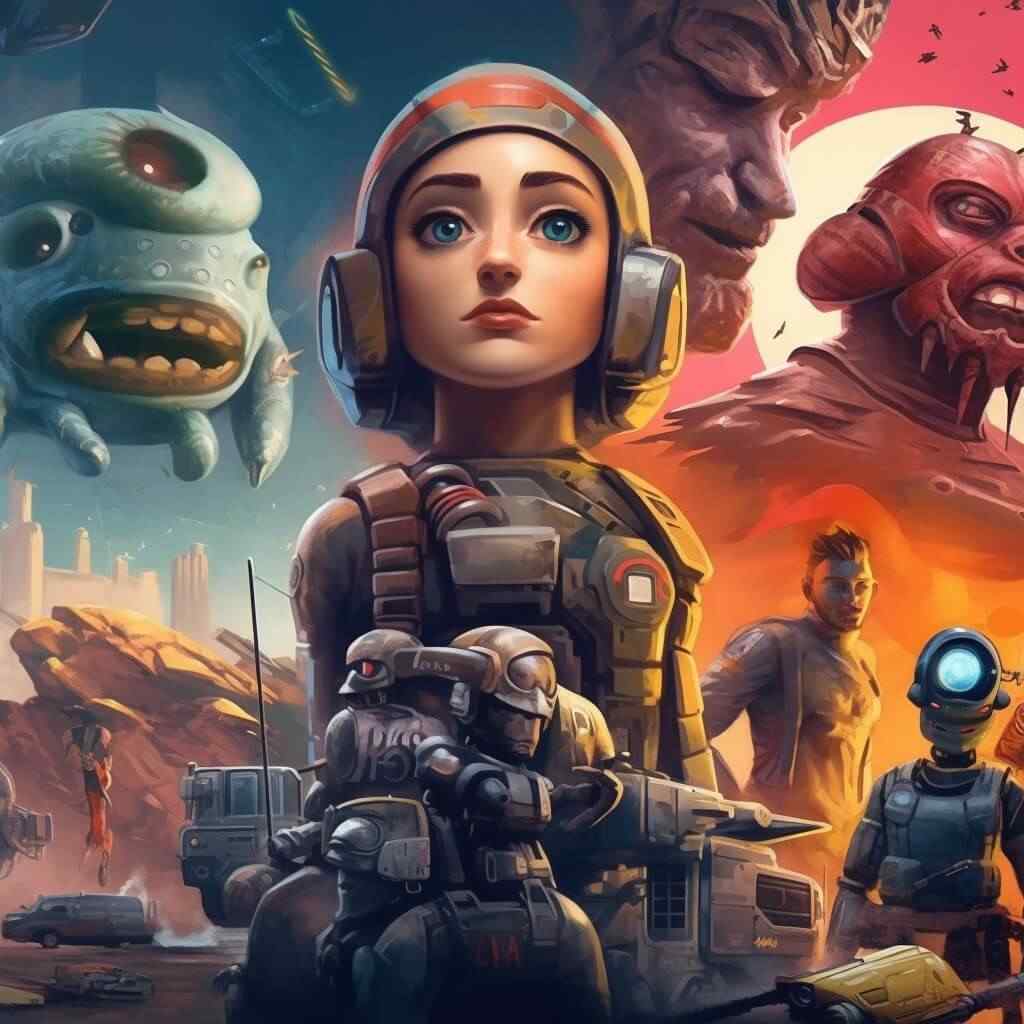
15. Frequently Asked Questions (FAQs)
What skills do I need to become a successful online gamer?
Success in online gaming requires a mix of technical and soft skills. Technical skills include understanding game mechanics, strategizing, quick reflexes, and hand-eye coordination. Soft skills include communication, teamwork (for multiplayer games), patience, and resilience. The ability to analyze gameplay and learn from mistakes is also important.
Can I really earn money from online gaming?
Yes, many people earn money from online gaming. However, it’s not just about being good at a game. You can earn from esports competitions, streaming on platforms like Twitch, game testing, and content creation (like YouTube gaming channels). Additionally, game developers and professional critics can also earn a living in the industry.
What equipment do I need to start online gaming?
Basic equipment includes a gaming PC or console, a reliable internet connection, and peripherals like a gaming mouse, keyboard, and headset. If you plan to stream, you’ll also need a good webcam and microphone. The specifics can vary based on the type of game and your personal preferences.
How do I choose the right game to play?
Consider your interests and skills. Are you into strategy, action, role-playing, or sports games? Do you prefer single-player or multiplayer games? Play various games to find out what you enjoy the most. It’s also worth considering the game’s popularity and community, as these can provide more opportunities for growth and income.
How can I improve my gaming skills?
Practice is key. Spend time learning the game mechanics and strategies. Watch tutorials and streams of skilled players, and analyze your gameplay to identify areas for improvement. Also, don’t neglect your physical health – regular exercise, a good diet, and adequate rest can all enhance your gaming performance.
What are some of the legal aspects I should be aware of in online gaming?
Be aware of issues like copyright (especially if you’re streaming or creating content), data privacy, and the terms of service for the game and any platforms you’re using. In some areas, there may also be legal restrictions on certain types of games or aspects like in-game purchases.
Is online gaming safe?
While online gaming can be safe, it’s important to be aware of potential risks like cyberbullying, scams, and addiction. Protect your personal information, use secure payment methods for in-game purchases, and take steps to balance gaming with other areas of your life.

